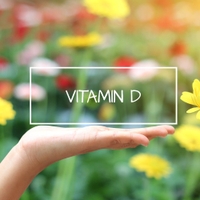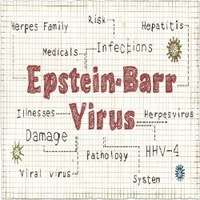
In 5 minutes with ...
Jacqui discusses her experience with rheumatoid arthritis, including the herbs, nutrients and homoeopathic therapies that have helped her.
Jacqui's details ...
Naturopath, Head of Education at vital.ly
Before we delve into your experience with rheumatoid arthritis (RA), what led you into studying naturopathy?
It was being diagnosed with rheumatoid arthritis (RA) at 21 years of age. The conclusion given to me at the time about what RA could look like was just plain scary, and especially the comment by my doctor at the time as he patted me on the head and said, "Here, kiddo, take these for the rest of your life".
It got me thinking that there must be something more to it than medication. I'm certainly not against medication. I've taken it when needed throughout my life, and I'm thankful for it. But I felt I could do something else. And I thought to myself; surely there must be another way.
To add, it was scary having seen some of my family members crippled by rheumatoid arthritis, so I looked up a naturopath, and I found a naturopathic biochemist. He was so insightful into the world of diet, physiology, acidity, how you think, how you sleep, and he prescribed certain herbs and nutrients that did take a good six months to have an effect. I was very compliant, and then I went and studied naturopathy, and I haven't had a flare in 27 years! until now.
He worked with live blood analysis and had a background training from Germany with live blood analysis. At the time, I had lots of free radical activity, inflammation, gut toxicity, high acidity, poor diet, and lacking optimal nutrition.
What helped you back then?
He fixed up my gut. He had a focus on my gut and adrenals. I was flat lining on a lot of nutrients. At the time, I remember that it was difficult to get the herb Maritime pine bark into Australia. I used to order it from New Zealand, and I took a tonne of that herb, and that was for its antioxidant and anti-inflammatory effects. It can inhibit nuclear factor kappa β (NF-κ β) activation ( involved in inflammatory and immune responses). It can inhibit cyclooxygenase (COX) 1 and COX-2 activity ( similar to non-steroidal anti-inflammatories), and there is also some research for it reducing C reactive protein (CRP) levels. There is theoretically some evidence that it might be an immunostimulant, but I took relatively large doses and it worked very well for me. I was monitored by my practitioner.
I also took some fish oils and radically changed my diet. I kept nightshades low. I know the research doesn't show that nightshades have an effect specifically on rheumatoid arthritis, but they can aggravate pain or inflammation. I believe that's due to an ingredient in it called solanine. So, I kept my nightshade veggies down, more from that sense of achieving an acid-alkaline balance. I'm Irish, so it’ll be a hard time giving up potatoes! But I just kept to an alkaline diet predominantly. I took up meditation as well. A very holistic approach you can say that was remarkable in the changes I experienced.
You mentioned you hadn’t had a flare for 27 years. So where are you at now with your RA?
So about eight months ago I had a flare. That’s been quite a challenge. So why has it flared? Last year, I experienced a rather traumatic event with some of my farm pets. And since then, I've just had different digits of my hands flaring up. My GP suggested I chat with a rheumatologist, which I did. She's great. She has a holistic approach to medicine as well. I had a physical examination, various blood tests, and imaging studies like x-rays and ultrasound with her. The rheumatoid arthritis was confirmed again via the anti-nuclear antibody and rheumatoid factor. Those markers were through the roof. I was also screened for Ross River virus and HIV/AIDS to name a few, and that was because certain viruses can trigger symptoms similar to those of RA. But that was not the case for me.
What is helping you manage your RA now? And how is that different to before?
I was prescribed hydroxychloroquine this time and I had a bad reaction to it. I stopped that straight away, and I'm taking a mixture of herbal, nutritional and homoeopathics. With those, I've been focusing on anti-inflammatory, immune modulation, adrenal support and pain management.
Some of the herbs and nutrients I've been taking include turmeric (curcumin) up to one gram per day and PEA and that's for the symptoms of pain. PEA I’ve been taking 1.2 g per day works for me personally. My vitamin D over time was low and given vitamin Ds role in modulating innate immunity and inflammatory response, I've been taking between 4,000 to 8,000 IU of vitamin D over the recent six to eight months. I've also been taking fish oil plus SPM, which are the specialised pro-resolving mediators. They are endogenous regulators of inflammation and infection. So, I've been having roughly 1.2 g EPA, 800mg DHA and 40mg SPMs per day which so far works for me. For immune modulation, I've been taking medicinal mushrooms that's included reishi, shiitake and arabinoxylan on rotation.
I’m also taking a magnesium and taurine in combination. Taurine helping reducing IL-1 and IL-6 given they’re key players in driving inflammation in RA. Taurine also helping with damaged tissue and it’s also good for free radical scavenging.
What's been a big game-changer as well, to add into this mix, has been homoeopathic support in a classical sense. My homoeopath is also a general medicine practitioner, so she has a very holistic, all-rounded approach. Using a classical homeopathic approach, she's working on some old trauma, which I really do believe is helping me with the present current clinical picture. I've been having various homoeopathics that are suitable for me as an individual. But there is a homoeopathic called Bryonia that literally just reduced the swelling within hours, which was quite amazing. I haven't stayed on that particular homoeopathic, that was just for acute, whilst some of the classical homoeopathics have been working in the background. Classical homoeopathy works on ones constitution and has a focus on the layers of dis-ease in the body, starting from mental, emotional layers, with physical symptoms usually being worked on last. Like peeling away layers of an onion. So I'm feeling very confident with regards to the holistic approach that's occurring from a nutritional, herbal, homoeopathic and medical sense. I’m still seeing my rheumatologist and getting regular checks. So far, so good.
I'm not taking the Maritime pine bark. I considered it but given that I'm taking a bit of a different mix at the moment, I decided not to take it however I’m well aware to bring it in when needed.
I am also taking crushed fenugreek seeds. I was recommended to crush fenugreek seeds and leave them in the fridge overnight and then drink the water in the morning. It’s an Ayurvedic medicine known to be very good for potentially reducing the symptoms of rheumatoid arthritis.
Are there any diet or lifestyle interventions you also include?
Fresh salads and keeping alkaline diet focus is really helpful. I notice I can flare up worse when I don’t follow eating this way.
Variety in my eating as well to keep my microbiome diverse and happy.
I am still avoiding nightshades, particularly tomatoes, I find them quite acidic.
In terms of lifestyle interventions, I meditate daily for an hour. I use magnesium salts and I put my hands in a warm salt bath. Pure magic.
I did martial arts for 9 years and I think a lot of the sparring hits and kicks was pretty high impact on my body, so now I stick to more pilates and yoga type exercises.
My accredited hand therapist has given me some exercises that I do regularly and daily which really help.
There are an amazing array of ergonomic materials that can help you with laptop work, writing and general daily activities. Like I use an ergonomic pen, oyster mouse and I have an array of compression sleeves for helping with circulation and preventing hurting my fingers.
What aggravates flares for you?
I sure do know what my triggers are. So acidic foods, fried foods, which I don’t eat a lot of anyway, and stress. So getting enough sleep, eating a good fresh diet, lots of fruit and vegetables is important. I don’t eat a lot of meat. Just keeping that acid-alkaline balance I’m finding is a game changer. I don’t drink a lot of alcohol, but if I have two glasses it is a trigger. Alcohol certainly aggravates the symptoms.
So far my markers have come down from a rather high level, I’m pleased with this.....I’m keeping on a holistic body mind approach which is tracking so far so good.
Thanks for sharing your experience and clinical insights Jacqui.
Click here for exercises from an accredited hand therapist






